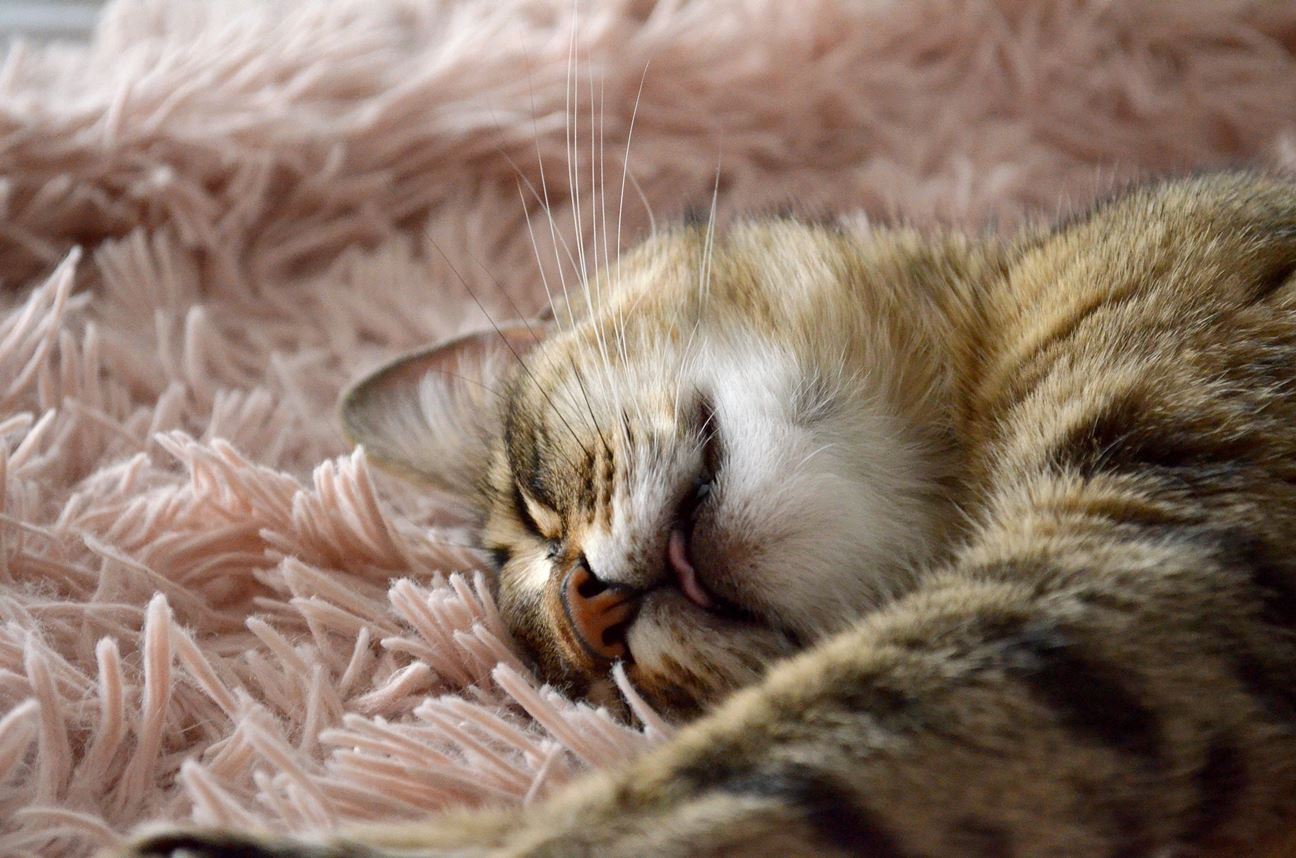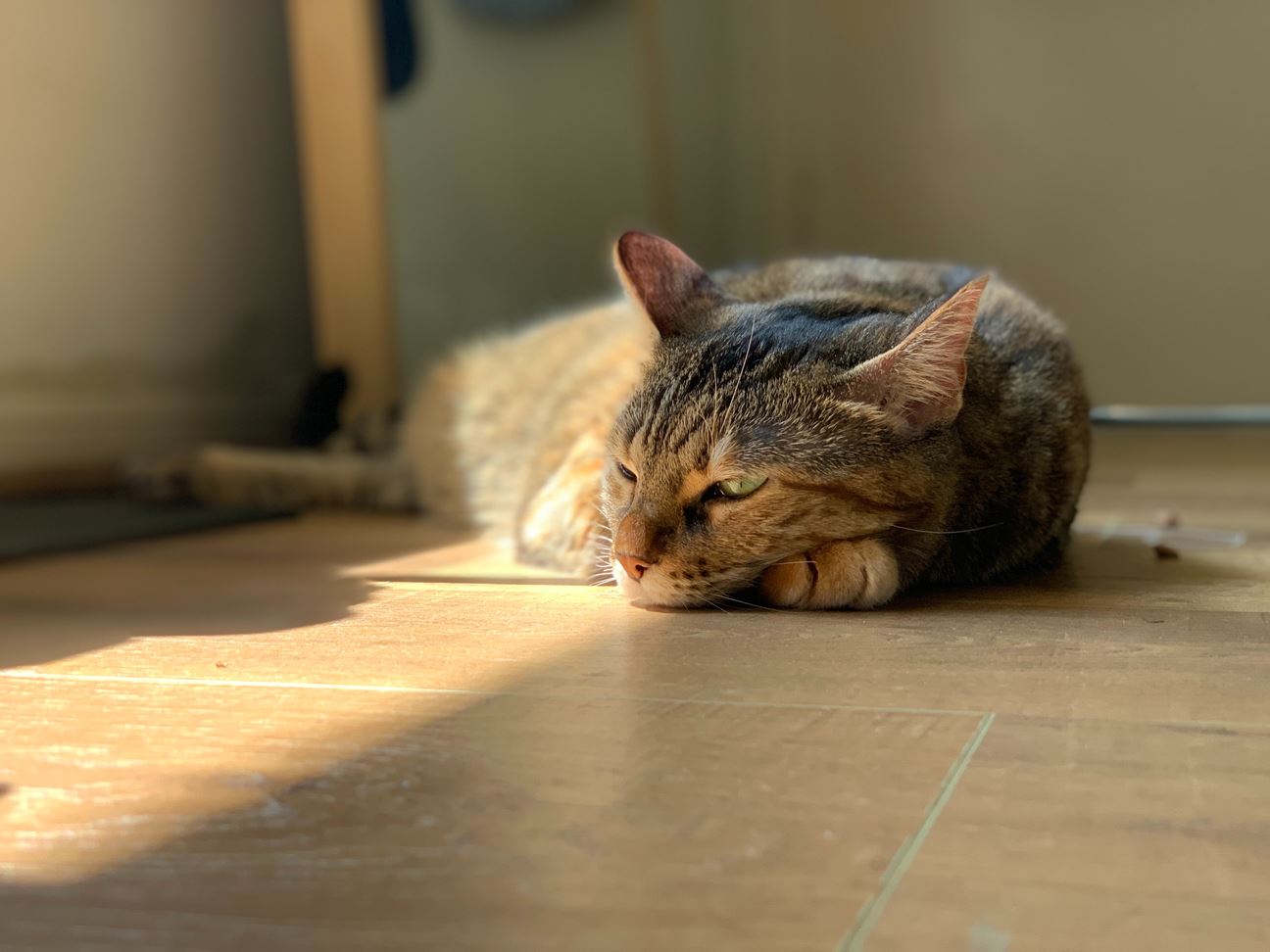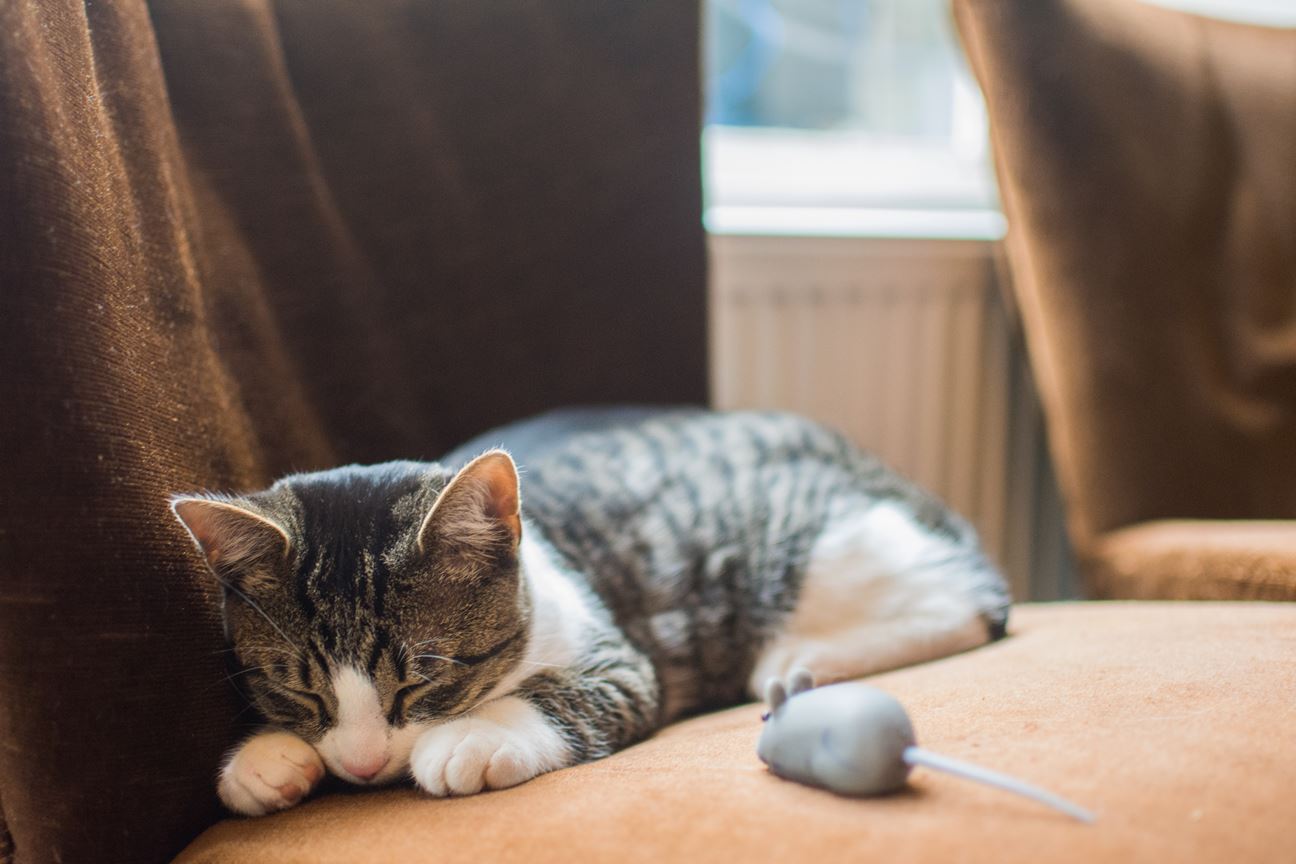Cats sleep a lot and still stay in shape?! Hmm... but what makes cats sleep so much? Let's find out.
“I am coming as a cat in my next life!” If you have had this thought, chances are you have seen your cat snooze! And they snooze! snooze like a boss. Cats can sleep a lot - averaging 16 hours a day, while some can even go upwards of 20 hours a day. Now this isn’t because your cat is bored or lazy, but its tendency to doze the time away is hard-wired into its genes. Let's see how.

So Why Do Cats Sleep so Much?
You must be familiar with the nocturnal and diurnal animals, but did you know your cat is a crepuscular animal? The word is taken from the Latin word meaning ‘twilight’ - and that means your cat is most active during dawn and dusk. Now, your cat may not be a predator in the wild, but she thinks like one. Her physiology has evolved from her counterparts in the wild - like lions and panthers. And this is evident even in house cats through their primal instincts of creeping up from a distance, hiding in plain sight, stalking and pouncing on their target. The reason big cats choose these dimly lit moments of the day to be most active is simple. Most of their prey (like small animals and herbivores) are inactive during this time of the day - either because they are tired from the day’s foraging or are just waking up from their sleep. Plus, it is usually difficult for most animals to see during these times, which gives the cat an edge. Stalking and hunting instincts come naturally to the cats, and these instincts are the reason cats sleep so much. Hunting is an intense exercise and takes up a lot of energy. All that running and pouncing can burn off calories quickly, and so cats sleep to conserve the energy and recuperate. Wild cats and house cats both tend to sleep most part of the day coz they need all that energy; whether hunting in the wild or chasing a cat toy in the house.
There are a few more reasons cats sleep so much. Cats need protein. As a true carnivore, cats use protein as a foundation of many of her dietary needs. And the protein can take time to digest. Aiding the digestion process is another reason why cats sleep so much. Weather is an important factor for cats' sleeping needs. Cold and rainy days will tend to make your kitty sleep more (just like us!), while warm and sunny days will make them stay generally more active (also like us!)
Fun Facts About Cat’s Sleep!

- Cats sleep through ⅔ of their living years. It is perfectly normal and healthy for your cat to sleep longer durations during the day and at night. Kittens and junior cats have more erratic sleep patterns combined with short periods of intense playtime. Kittens love to sleep up to 18-20 hours a day. At this age, their sleep is light and slightly agitated. You may observe kittens make small and fast contraction of face muscles along with little sounds of meows. Younger cats tend to sleep close to their favourite humans as it makes them feel warm and protected. Sleep also helps reinforce learning and memorization in kittens and junior cats. After 3 or4 months of age, kittens start to get bold and independent and may start sleeping alone - usually at places that are high off the ground. Similarly, elderly cats also tend to sleep a lot due to reduced energy levels and mobility. But adult cats will have a set pattern of sleep that can range between 14 to 16 hours a day.
- Just like humans, cats also experience both non-REM sleep and REM sleep. Their sleep cycle has two phases - sound sleep of 20 to 25 minutes, followed by REM (paradoxical) sleep of about 5 minutes. American researcher William C. Dement and French physiologist Michel Jouvet have done some significant research on the sleep mechanisms in cats. Jouvet’s report was like Dement in many ways, which led to many advances in sleep studies in cats. Jouvet later came up with the term ‘paradoxical sleep’. He called the sleep paradoxical because of its contradictory nature. Cats, when in REM (rapid eye movement) cycle, show signs that are like an organism that is awake, and hence the contradiction. Parameters such as breathing and heart rate are known to fluctuate during this phase, and some cats may even display quick and jerky movements under their closed eyelids. While their bodies appear to be relaxed, traces of activities are found all over the body. An EEG done on a sleeping cat shows a noisy and alert pattern.
- And so, even when asleep, cats are alert. It is natural for cats to invoke the fight-or-flight response, even at a moment’s notice. You must have noticed that at times cats position themselves in a way that they can spring in action in no time. Cats alternate between dozing and deep sleep. While dozing, the cat's sleep is light and lasts about 20-30 minutes; and deep sleep lasts about 5 minutes where cats experience a rapid brain activity.
- Most of the cats' daily sleep happens during the daytime. And so many owners complain of cats being extremely active at night. Cats' ancestors slept all day so that they could hunt at night. Their sharp hearing, along with their superior ability to see in the dark, made them into nocturnal hunters. Your house cats are just carrying the legacy forward! Though many cats are known to adjust their sleep schedule as per their favourite humans’ zzz’s.
- Some cats snore just like you! Snoring in cats happens during their deep sleep and is usually a result of narrowing of the airways. The soft tissues in their airways tend to vibrate, which leads to audible breathing. Nothing to worry about here. It is perfectly normal for your cat to snore. But if you find your cat is excessively snoring or making unusual sounds, book a visit to the vet.
But do cats dream?

The answer is yes! Cats do dream. Dreaming in cats occurs during the REM cycle, while the brain is the most active. Young cats tend to dream more compared to the older ones because they need to process the information that they have gathered during waking hours. Activities like jumping off the cat trees, scratching the posts, hanging off the curtains, playing with their humans are processed when cats sleep. Scientists believe that some of these activities are even relived during sleep. And this causes your cat to twitch facial muscles, move limbs, and even make cute and funny sounds. But just like humans, cats can also have nightmares and bad dreams. Luckily for them, they do not happen very often. A cat’s life is a dream indeed.